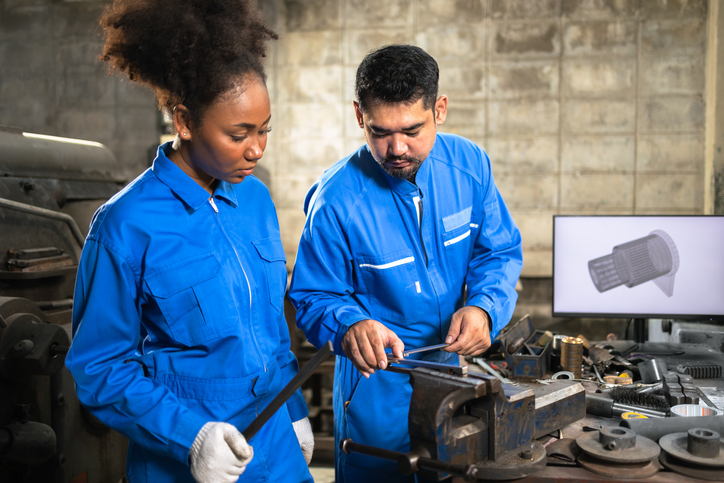New Mechanic Mistakes: 5 Lessons for Aspiring Auto Technicians
Starting a career as an auto technician can be exciting, but it also comes with challenges. Many new mechanics enter the shop eager to learn, only to stumble over common mistakes that could easily be avoided with proper guidance. That’s where auto mechanic training plays such an important role.
At ATC Cambridge, students gain the technical knowledge, hands-on practice, and professional habits needed to avoid these pitfalls and build successful careers. Here are five mistakes new mechanics often make—and the lessons you can take from them.
1. Skipping the Basics
One of the first errors new mechanics make is overlooking the fundamentals. Whether it’s neglecting to torque bolts correctly, forgetting to double-check fluid levels, or ignoring simple safety checks, small missteps can lead to big consequences.
At our auto mechanic school, you’ll practice the basics repeatedly until they become second nature. This strong foundation ensures you can confidently handle advanced repairs later on.
2. Relying Too Much on Guesswork
With today’s vehicles packed with sensors and electronics, guessing what’s wrong is no longer enough. Some beginners jump into repairs without properly diagnosing the issue, which can waste time and create bigger problems.
During auto mechanic training, you’ll learn how to use diagnostic tools, read error codes, and follow systematic troubleshooting steps. These habits help you solve issues accurately and efficiently—skills that employers value.

3. Mishandling Tools and Equipment
Every mechanic relies on their tools, but new technicians sometimes rush into jobs without knowing how to use equipment properly. Misusing torque wrenches, diagnostic scanners, or even basic hand tools can slow you down and cause costly errors.
In training, instructors guide you through correct tool usage in real-world scenarios. This practice not only improves your efficiency but also helps protect expensive shop equipment from unnecessary damage.
4. Overlooking Communication
Fixing cars is only part of the job. Communicating with customers and coworkers is just as important. New mechanics sometimes focus so much on repairs that they forget to explain the problem clearly, update a customer, or ask for help when needed.
ATC emphasizes communication skills as part of our auto mechanic school curriculum. You’ll practice explaining repair steps, writing work orders, and collaborating with teammates. These skills build trust and ensure smooth shop operations.
5. Forgetting That Learning Never Stops
Another mistake is assuming graduation means you know it all. The auto industry evolves constantly with hybrid systems, EVs, and new diagnostic software. Mechanics who stop learning risk falling behind.
That’s why ATC trains students to approach their careers with curiosity and adaptability. If you want to become a mechanic with long-term success, committing to ongoing education—through workshops, certifications, and new technology training—is essential.

Prepare for Your Career the Right Way with Auto Mechanic Training at ATC Cambridge
Mistakes are part of learning, but they don’t have to hold you back. With the right mindset and training, you can avoid the most common errors new mechanics face and instead build confidence, credibility, and career opportunities.
Auto mechanic training at ATC Cambridge equips you with both technical expertise and professional habits. From mastering diagnostics to improving communication, the lessons you learn here prepare you for the real world of auto repair.
If you’re ready to become a skilled, adaptable, and job-ready auto mechanic, start your journey today at our auto mechanic school and prepare yourself for success.
Do you want to become a mechanic?
Contact ATC Cambridge for more information.


